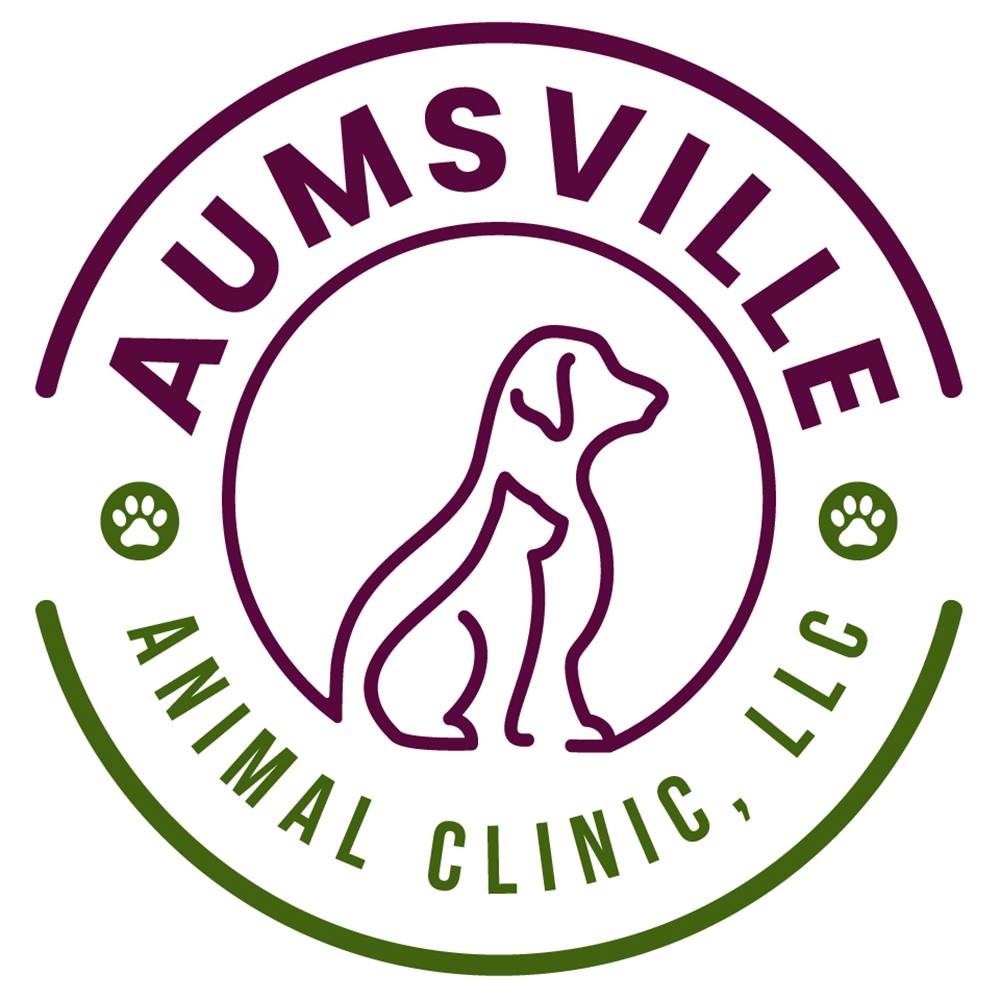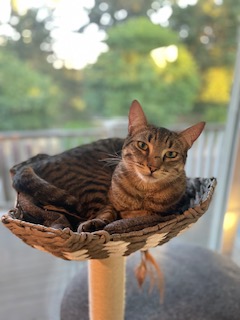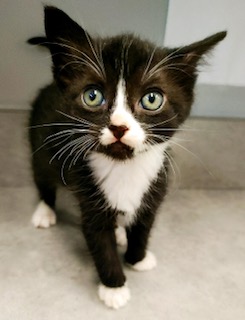Cat and Kitten Wellness
Comprehensive care for feline health, including check-ups, vaccinations, nutrition, and advice for happy, thriving pets.
Cat & Kitten Wellness
Cats and kittens can be wonderful additions to any family! Here are some tips to help you establish a healthy environment and veterinary care routine for your cat or kitten.
Recommended Wellness Protocol for Cats and Kittens
Age |
Vaccinations |
Parasite Management |
Testing |
| 2-6 weeks | – | Strongid every 2 weeks for worms | – |
| 8 weeks | FVRCP/FeLV | Revolution Plus monthly | Fecal analysis |
| 12 weeks | FVRCP/FeLV | Revolution Plus monthly | – |
| 16 week | FVRCP/FeLV | Revolution Plus monthly | – |
| 6 months | Rabies | Bravecto Plus every 3 months | FIV, FeLV, & Heartworm test |
| 1+ years | Annual boosters | Bravecto Plus every 3 months | Annual fecal |
Vaccinations
Vaccinations are an essential part of keeping pets safe from infectious diseases. We recommend beginning vaccinations when your kitten is eight weeks of age or greater than 2 lbs of weight, followed by regular boosters.
Note: After vaccination, your cat or kitten may be tired, tender, and not want to eat well for 24 hours. This is normal and to be expected. If this persists past 24 hours, please let us know.
Deworming & Flea Control Products
It is not uncommon for cats and kittens to become infected with external or internal parasites such as fleas and worms at some point in their lifetime, even in well-cared-for pets. These parasites can cause symptoms from mild irritation to serious disease if left untreated and can also transmit disease to people. When you protect your cats against parasites, you are also protecting your home and family!
Deworming: Kittens can get worms from their mom while nursing. They are more susceptible than adult cats, and we will deworm them more frequently during their first few months of life. Many topical flea products also contain deworming, so we can take care of fleas and worms simultaneously!
Flea products: At your visit, we may apply a flea preventative or de-wormer to the back of your cat or kitten’s neck. It is essential to know that if they or other pets accidentally lick some of it, it will taste bad, and they may start salivating, but the products are safe and will not harm them.
Parasite Control Products We May Recommend
Revolution Plus & Bravecto Feline Plus (Broad-spectrum is best!):
- Protects against fleas, ticks, mites, ears mites, heartworm, and other internal parasites (not tapeworms)
- Recommended for most kittens > 2.8 lbs. at least eight weeks of age.
- At six months, they can transition to Bravecto Feline Plus, offering 8-12 weeks of protection.
Profender (Periodic treatment) to be used in addition to regular parasite control:
- For tapeworms, roundworms, and hookworms only. A good option for indoor/outdoor cats that are hunters. Does not protect against fleas, mites, or ticks
- Profender is used for deworming in cats, kittens & and 2.2 lbs. at least eight weeks of age.
- If < 2.2 lbs. or younger than eight weeks of age, Strongid is recommended for deworming.
Testing for Kittens and Adult Cats
At your wellness visit, we may recommend diagnostic testing for your cat. These tests help us ensure that your cat is free from parasites and/or infectious diseases, even though they appear otherwise healthy.
Diagnostic Tests We May Recommend
Fecal analysis:
- An initial fecal analysis is recommended for all kittens.
- Essential for cats that are hunters, not on a consistent deworming schedule, or are symptomatic.
- Recommended for adult cats annually.
Feline FIV, FeLV, and Heartworm testing:
- FIV and FeLV testing is essential for all kittens, especially those with unknown vaccination status, those with access to the outdoors, or those from feral parents.
Important Considerations for Kittens
Spay or Neuter: We recommend spaying or neutering your kitten around 6-10 months. For females, this will prevent unwanted litter and mammary cancers. This will reduce males’ tendency to spray urine and get into territorial fights with other cats.
Diet: Kittens must be on a kitten or growth diet for the first 6-8 months. This is very important for bone development and growth. We recommend premium brands appropriate for the lifestyle of your pet.
Indoor vs. outdoor: Cats often live longer, healthier lives by being kept indoors. Outdoor cats are more at risk of contracting diseases such as Feline Leukemia or Feline Aids Virus (FIV) (both are transmitted via saliva bites or sharing food) and intestinal parasites from hunting. Indoor cats will need more enrichment to their environment to alleviate boredom, such as being provided with things to scratch on and/or climb so they can “look down upon their subjects.” It is encouraged to have several types of scratchers available to find out what your cat prefers. Sisal, cardboard, and carpet are just some options. Some cats like to stretch and scratch vertically, others horizontally. If your kitten targets your furniture, try wrapping it in aluminum foil or double-sided sticky tape to discourage them.
Litter boxes: Please provide at least one litter box per cat, plus one extra. Boxes should be in convenient locations around the house but not near the cat feeding bowls. Make sure the boxes are cleaned daily.


